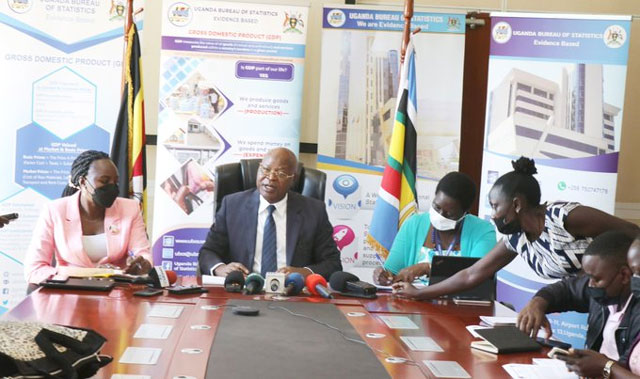
Kampala, Uganda | THE INDEPENDENT | The Uganda Bureau of Statistics (UBOS) has reported substantial progress in preparatory work, ahead of the highly anticipated Population Census in 2024. According to Chris Mukiza, the UBOS Executive Director the bureau has achieved an impressive 86 percent completion rate in preparatory tasks.
The remaining key tasks include mapping cities, excluding the already mapped Mbale, and finalizing the procurement process for over 120,000 tablets. These tablets, directly sourced from an international manufacturer, not only ensure cost efficiency but are also customized for the specific requirements of this census.
During a media training session coinciding with the launch of African Statistics Week, Mukiza provided insights into the advancements and challenges faced. He highlighted the significance of the upcoming census, initially scheduled for August 2023 but later rescheduled to May 10, 2024, to address concerns such as preparatory inadequacies and delayed tablet deliveries – crucial tools for this comprehensive exercise.
The Population Census 2024 is set to be a landmark event as Uganda’s first-ever digital census. Mukiza outlined key features of this transformation, including assigning a geocode to each household. This departure from the traditional area boundary-coding method offers an interactive map on tablets during enumeration.
Mukiza explained, “The tablet digital interface will display information on characteristics, roads, schools, and boundaries, revolutionizing the data collection process.”
To build anticipation for this groundbreaking census, Mukiza announced the official launch scheduled for November 30, to be presided over by the president. The countdown contributes to the sense of expectation surrounding the extensive data collection effort. Uganda’s last population and housing census was in 2014.
Currently estimated at 45.5 million, with a growth rate of 30.4 percent million, UBOS is committed to providing accurate and updated demographic information. The 2024 census serves as an essential step in ensuring that Uganda’s demographic data remains current, reflecting the nation’s evolving landscape. Regarding the African Statistical Week, Mukiza mentioned a collaboration among statistical bodies on the continent to strengthen data quality, focusing on facilitating trade under the African Continental Free Trade Area.
“We want to find data about each country’s protection of production and consumption, as well as the competitive advantages they have over each other,’ he said. The week-long celebration includes various initiatives, such as corporate social responsibility activities, a student awareness symposium on statistical activities, a Geo-Information System day, and strategic engagements with key stakeholders from the government and private sector.
As UBOS strives to bolster statistical information for accelerated trade, the upcoming census stands as a pivotal moment in Uganda’s commitment to robust and digitally-driven demographic data collection, shaping the narrative for the country’s future development.
****
URN
 The Independent Uganda: You get the Truth we Pay the Price
The Independent Uganda: You get the Truth we Pay the Price




Being a numerator